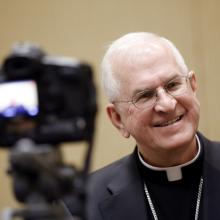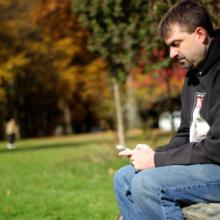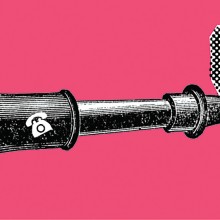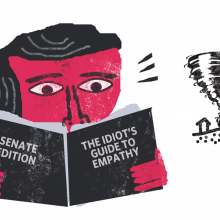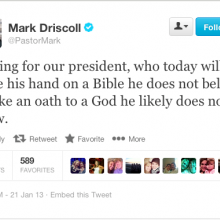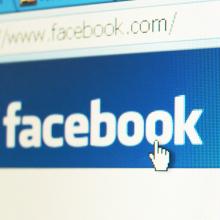In response to the death of Michael Brown, many people are using the hastag #IfTheyGunnedMeDown on Twitter to consider the role that images used by the media have on the public's perception of vicitms.
Which picture would the media use #iftheygunnedmedown the left or the right? pic.twitter.com/BXGjJFvRco
— Adam SLANDER (@mr_mookie) August 10, 2014
Here's more according to the Washington Post:
The concern is how media will portray a dead child’s life after he’s slain by police officers. This is the stuff of#IfTheyGunnedMeDown, a Twitter hashtag that trended Sunday as part of the conversation surrounding the death of Michael Brown. Brown, 18, was an unarmed black teenager slain in Ferguson, Mo. He’d recently graduated high school. Black users shared pictures of themselves at their best — in uniforms or caps and gowns — juxtaposed with images that would garner less sympathy and perhaps paint more tawdry pictures of their lives.
YOU DON’T HAVE to be an environmentalist to wonder about technology. Will it be our great savior or another thorn in the flesh, another opportunity to hear Thoreau’s lament about the tendency of humans to “become the tools of their tools”?
This excellent collection of prayers and worship materials, From the Psalms to the Cloud, helps us understand the tool of technology. It is a very green book while also being useful. It is green because it gives us a way out of the totalitarian world of the market and into a world that we make with words.
Just about everybody is on the other side of the “time famine” and the “trust famine” and deep into digital and connectivity overload. By time famine I mean the pervasive sense that there is not enough time to do what we want, so subjugated is our time to technology, forms, and robotic requests for information. By trust famine I mean all that time we spend worrying about time and wondering if somebody else is in charge. Are we in charge of our tools and our time or are our tools and time in charge of us?
In this optimistic book, the prophets arrive. Mankin and Tirabassi ask the right question: Can a technology devoted to advertising be useful to spirituality? They answer with a careful yes, taking us on the long road from the Psalms to Twitter, by way of “vintage wine in vintage wineskins, uncorked.” These two writers gather the wisdom of dozens of beautiful writers of prayers and liturgies and show us a way to go deep digitally. Whether they are praying for energy that will “deeply change all of our clocks,” or for the return of the time when churches giving sanctuary for immigrants will become again “dusty places with pews,” or in any of John Dannon’s exquisite doxologies for the natural and ecclesiastical seasons, or encouraging us to “spend a day saying nothing that doesn’t need saying.” The prayer topics move through addiction to pregnancy to a ritual for quitting a job. What a great ask this is for those confused or overdone with technology: We pray “for a trap door when we hit rock bottom.”
Pink princess pajamas. Jeans and a t-shirt. Sweatpants and a baggy sweater.
When Twitter user Christina Fox (@Steenfox) asked her followers, “What were you wearing when you were assaulted?” some answered with these clothes.
Fox prompted the question after reading a story about a 60-year-old woman who was raped by her grandson.
Actor Russell Crowe is using social media to try to cajole Pope Francis into seeing his latest film, the controversial “Noah,” which stars Crowe as the waterlogged biblical patriarch.
The $125 million film, which will go into wide release next month, already has some religious groups upset over a story line they say takes too many liberties in director Darren Aronofsky’s adaptation to the silver screen. Crowe says he’d like Francis to see the film to make up his own mind.
Crowe — who won an Oscar 14 years ago for “Gladiator,” which was set in ancient Rome — tweeted an invitation to the pope, reading in part, “The message of the film is powerful, fascinating, resonant.”
Nearly every home has at least one Bible, although few read it.
But 16 percent of Americans log on to Twitter every day. And that’s where author Jana Riess takes the word of God. A popular Mormon blogger at Religion News Service and author of “Flunking Sainthood,” Riess spent four years tweeting every book of the Old and New Testaments with pith and wit.
Now, the complete collection — each chapter condensed to 140 characters — is on sale as “The Twible,” (rhymes with Bible) with added cartoons and zippy summaries for each biblical book.
Her tweets mix theology with pop-culture inside jokes on sources as varied as ”Pride and Prejudice,” “The Lord of the Rings,” and digital acronyms such as LYAS (love you as a sister). To save on precious character count, God is simply “G.”
After serving as vice president of the U.S. Conference of Catholic Bishops for the past three years, there was little surprise when Archbishop Joseph Kurtz of Louisville, Ky., was elected this week to the top post in the American hierarchy.
Yet the nearly 250 churchmen would have been hard-pressed to find a better president to help them pivot toward the new, more pastoral path set out in recent months by Pope Francis.
Kurtz has earned his stripes with the hierarchy’s conservative wing thanks to his past work heading their campaign against gay marriage, but he was also molded by his early years as a pastor and his work in social justice — experiences he mentioned early and often when facing reporters after his election on Tuesday.
Like lots of college students, Lauren has a smartphone loaded with some of the most popular apps around — Facebook, Twitter, and eBay. And like a lot of unbelievers, she asked to not use her full name because her family doesn’t know about her closet atheism.
One of the apps she uses most regularly is YouVersion, a free Bible app that puts a library’s worth of translations — more than 700 — in the palm of her hand. Close to 115 million people have downloaded YouVersion, making it among the most popular apps of all time.
But Lauren, a 22-year-old chemistry major from Colorado, is not interested in the app’s mission to deepen faith and biblical literacy. A newly minted atheist, she uses her YouVersion Bible app to try to persuade people away from the Christianity she grew up in.
“I know of a lot of atheists who have come to their nonbelief by actually reading the Bible rather than just the fluffy stories they choose to tell you about in church,” she said. “Reading the full story with all its contradictions and violence and sexism, it should make you think, ‘Is this really what I believe in?’ At least it did for me.”
Lauren is not alone. No one knows how many atheists have downloaded YouVersion and other smartphone and tablet Bible apps, but it is enough that word of the phenomenon has reached the Edmond, Okla., headquarters of LifeChurch.tv, the evangelical megachurch that created the app.
I got fitted for a custom-tailored suit this week.
Not because I suddenly found a pot of money. I didn’t, and I didn’t need to. The cost for this Hong Kong tailor is comparable to what I have been paying for off-the-rack suits.
My problem is middle age. My shifting body type makes off-the-rack suits too wide in the shoulders and too long. It’s proof that life keeps on changing, and that the way forward must include getting unstuck from old ideas.
On my first Patriots’ Day in Boston, I was enjoying lunch with several colleagues when someone rushed into the restaurant: There had been an explosion at the finish line of the Boston Marathon. Moments later, caravans of ambulances and police cars raced, and the reports of casualties rolled in.
In the hours and days that followed, social media became for me, and many others, a sacred space to share our prayers and words of disbelief.
SINCE WE NOW know the federal government has been monitoring our every move for years—recording our telephone calls, reading our emails, trying to friend us on Facebook (“you have 295,984,457 mutual friends!”)—I wanted to clarify a few personal remarks that may have been misconstrued by NSA computers; computers which, I might add, are doing a heckuva job.
When I emailed a friend that I thought I “killed” at a recent gathering, I meant that I was particularly amusing that evening. I was not bragging about some heinous crime, which I would never commit anyway because, frankly, that’s not where the laughs are.
But “killed” looks bad in cyberspace, even though it’s something comedians want to do, as opposed to “bombed,” which is the opposite of “killed,” although NSA computers probably recognize a certain similarity between the two and automatically alert law enforcement officials. But again, the word “bombed” is a comedy concept meaning, variously, “wishing you were dead as an audience sits silently in judgment,” or for me, who entertains mainly in the homes of friends, “wishing you were dead, because people are laughing about you in the kitchen.”
But living in a free society means we shouldn’t have to watch what we say to avoid the unwanted curiosity of federal authorities. Heck, I get into enough trouble just trying to cheer up taciturn gatherings. (“Hey, is this a party or a funeral, hah hah?! What? Oh, sorry, I didn’t notice the flowers. Yes, he’ll be missed.”) On second thought, maybe a few days of secret CIA interrogation might do me some good. (“Were you under instructions from al Qaeda when you embarrassed your host by juggling the dinner rolls? Are there other social events you plan to terrorize or disrupt in the near future?”)
Following Pope Francis’ Twitter feed may be good for your soul — both in this life and the next.
The spiritual leader of the Roman Catholic Church plans to grant plenary indulgences by Twitter during the World Youth Day, which will be held July 23-28 in Brazil.
The indulgences, which Catholics believe can reduce the time a soul spends in purgatory, will be available to Francis’ nearly 7.5 million Twitter followers in all languages — if they tune in to World Youth Day broadcasts or take other spiritual actions. To get an indulgence, Catholics must have already had their sins absolved by a priest.
NOTHING MOVES ME more than a heartfelt tweet. Seriously. Don’t think I’m making fun here. I understand that the Twitter universe (“Twitterverse”? “World o’ Twits”?) is the current preferred method for connecting with the most people in the shortest amount of time. It’s certainly preferable to my generation’s method of communicating, which was to spray-paint the sides of barns.
But if the inspirational tweet is from a member of Congress—taking time away from doing the nation’s business in the most powerful city in the world, depending on where the Koch brothers are living at the time—I can get really choked up.
“My thoughts and prayers are with those in Oklahoma affected by the tragic tornado outbreak.”
Oozing with empathy and originality, this tweet was sent out by Oklahoma Sen. Tom Coburn a few hours after the extreme weather event in May that ravaged the town of Moore. What the tweet did not include—and his office quickly added, lest survivors searching through the rubble for loved ones got the wrong impression—was that the senator would not support federal relief funding unless it was offset elsewhere. If it’s not in the budget, according to Coburn’s long-standing philosophy, it’s not happening.
But let’s be fair: With a tweet you only get 140 characters, so in addition to the words “thoughts” and “prayers,” there’s barely enough room left over to express the important concepts of “freedom,” “liberty,” and “bootstraps,” three concepts people just love to think about when they’re crawling from under what used to be their house. Coburn’s point seems to be that when you’re covered with sheetrock, torn family photographs, and spray-painted sides of barns, the last thing you want is some government bureaucrat arriving with a meddlesome helping hand.
I have multiple online identities, the result of subconsciously trying to be a better version of myself — a better follower of Christ. But these various personalities that I portray among social media sites are fabrications. Here are a few examples why:
The single verse I post on Twitter is the only Scripture I read all day — even though my Facebook profile claims that the Bible is one of my favorite books.
C.S. Lewis, Dietrich Bonhoeffer, Donald Miller, and Francine Rivers are also listed, but only to prove my Evangelical IQ.
I’m #prayingforSandyHook and #prayingforBoston and #prayingforOklahoma, but I rarely pray.
I repost memes about global poverty, loving the poor, reconciliation and promoting peace, but I spend all of my spare time watching Netflix. ...
Pastor Rick Warren, the best-known name in American evangelism after Rev. Billy Graham, lost his 27-year-old son, Matthew, to suicide on Friday.
In the days since, uncounted strangers have joined the 20,000 congregants who worship at the megachurch network “Pastor Rick” built in Southern California, Warren’s nearly 1 million Twitter followers and hundreds of thousands of Facebook followers in flooding social media with consolation and prayer.
“Kay and I are overwhelmed by your love, prayers, and kind words,” Warren tweeted on Sunday. “You are all encouraging our #brokenhearts.”
But a shocking number are taking the moment of media attention to lash out at Warren on their digital tom-toms. The attacks are aimed both at him personally and at his Christian message.
Rev. Mark Driscoll, founder of Mars Hill church, has a true gift. Just when I think I’m making at least a modicum of progress toward tolerance – if not actual Christlike love – toward the guy, inevitably he does something to make me despise him all over again.
On the Monday, before President Obama’s inauguration ceremony, Driscoll sent out the following message to his more than 300,000 Twitter followers:
Praying for our president, who today will place his hand on a Bible he does not believe to take an oath to a God he likely does not know.
As of Thursday morning, the tweet has received more than 3,400 retweets and nearly 1,350 favorites. Driscoll’s next tweet was about an iPad Mini giveaway.
OK, the @firedbigbird tweets have been hilarious.
And it's almost understandable that America has given so much attention to the Big Bird comments from Tuesday's debate. (@Firedbigbird had more than 31,000 Twitter followers as of late Friday afternoon.)
I mean, Romney's comment was definitely a "zinger."
We get it. It's funny. But come on.
On Thursday, Public Broadcasting System (PBS) CEO Paula Kerger talked to CNN about the issue, and she couldn't believe the iconic children's TV star has gotten this much attention either.
Meet the social media “nones.” A new survey finds that Americans, while mostly religious, generally do not use social media to supplement worship and mostly keep their faith private online.
The Public Religion Research Institute survey found about one in 20 Americans followed a religious leader on Twitter or Facebook. A similar number belonged to a religious or spiritual Facebook group.
The results seem to defy the familiar story of prominent religious leaders using social media to build a following – and a brand.
“We were surprised when this turned up really low levels of people engaging religion and faith online,” said PRRI research director Daniel Cox.
A judge in New York has ordered Twitter to release three month's worth of tweets from an Occupy Wall Street protester charged with disorderly conduct during a march across the Brooklyn Bridge last year.
The Star-Ledger of Newark, N.J., reports:
Manhattan Criminal Court Judge Matthew A. Sciarrino Jr. rebuffed one of Twitter Inc.'s central arguments, which concerned who has rights to contest law enforcement demands for content posted on its site. But the judge said the company was right on a separate point that could require prosecutors to take further steps if they want to see one particular day of Malcolm Harris' tweets and his user information....
The case began as one of hundreds of disorderly conduct prosecutions stemming from an Oct. 1 Occupy march on the Brooklyn Bridge, but it has evolved into a closely watched legal tussle over law enforcement agencies' access to material posted on social networks.
The Manhattan district attorney's office said Harris' messages could show whether he was aware of police orders he's charged with disregarding. Twitter, meanwhile, said the case could put it in the unwanted position of having to take on legal fights that users could otherwise conduct on their own....
[Harris] challenged the subpoena for his tweets, saying prosecutors' bid for user information, alongside the messages, breached privacy and free-association rights. The data could give prosecutors a picture of his followers, their interactions through replies and retweets, and his location at various points, [his lawyer, Martin] Stolar said.
Read the report in its entirety HERE.
I struggle to know how much is enough. I hear about Joseph Kony and the many children he’s exploited as child soldiers. I get angry, discouraged. I write about it, talk to friends about it.
And then my life keeps moving and I don’t think about it again for days or weeks.
Trayvon Martin, an unarmed teenager, is gunned down on the street. The nation is divided, both outraged about the killing and fearful of the threat to gun rights and laws of self-defense.
And then we talk about something else.
Today’s issues include the nuns going head-to-head with the Vatican, as well as stories about still more preachers being busted for spousal abuse, or expelled from their jobs because of their sexual orientation.
Tomorrow it will be something else.



